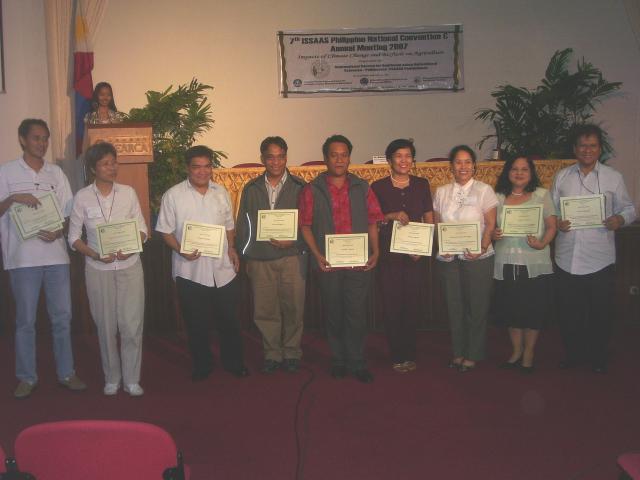
Researchers from KASC continue to put the name of the state college in various research forums, not only in the regional and national levels, but in the international level as well.
Two papers – Geographic Information System (GIS) Utilization in Project Development (by Manuel Bilagot Jr.), Patch Cultivation Among Tribe-Based Communities in Kalinga (by Jovita Saguibo and Ernesto Miguel) – will be competing in the conference of the International Society for Southeast Asian Agricultural Sciences (ISSAAS) in Malaysia on December 12-14.
Earlier, these papers were brought to the national conference of ISSAAS- Philippines in University of the Philippines-Los Baňos last October 26, with the theme “Impact of Climate Change and Bio-Fuels on Agriculture.” In UPLB, Dr. Bilagot’s GIS paper was awarded as the Best Paper in the Oral Category, while that of Dr. Saguibo and Dr. Miguel placed first in the Poster Presentation.
Having won in their respective categories, the researchers shall present their studies in the international forum in Malaysia where their undertakings would be put under more stringent scrutiny by other scientists and technical experts from the Southeast Asian region.
The GIS Program
This study was conducted to develop a GIS program to support Project Development efforts in the province of Kalinga, like the Barangay Electrification Program (BEP). BEP is a program of the government to support the number 6 item among the ten-point agenda of President Arroyo’s Administration. This is the provision of electricity to the un-energized places in the country.
The DOE entered into a Memorandum of Agreement (MOA) with Kalinga-Apayao State College (KASC) as the implementing arm of the Department in the province through the KASC-ANEC program. This program is mandated to support the implementation of the renewable energy in the province. It has been identified that there is a high number of renewable energy sources in the province – specifically micro hydro. Anchored on its desire to support this program of the government in planning, implementing and monitoring and evaluation of these installed micro hydro sources and to support a faster implementation of the energization of Kalinga, this GIS program was developed.
The Patch Cultivation Paper
This study was conducted to assess the factors associated with Swidden Farming or Patch cultivation in Barangay Magao-gao, Pinukpuk – zeroing-in on the factors why the rural dwellers there are so much dependent on the environmentally harmful practice. It focused mainly on the factors of Socioeconomic, Cultural and Political aspects in the community.
Results of the investigation showed that the factor of culture and tradition is the main reason for patch cultivation in Magao-gao. The socio economic factors on labor, capital and knowledge also showed strong factors.

Leave Your Comments